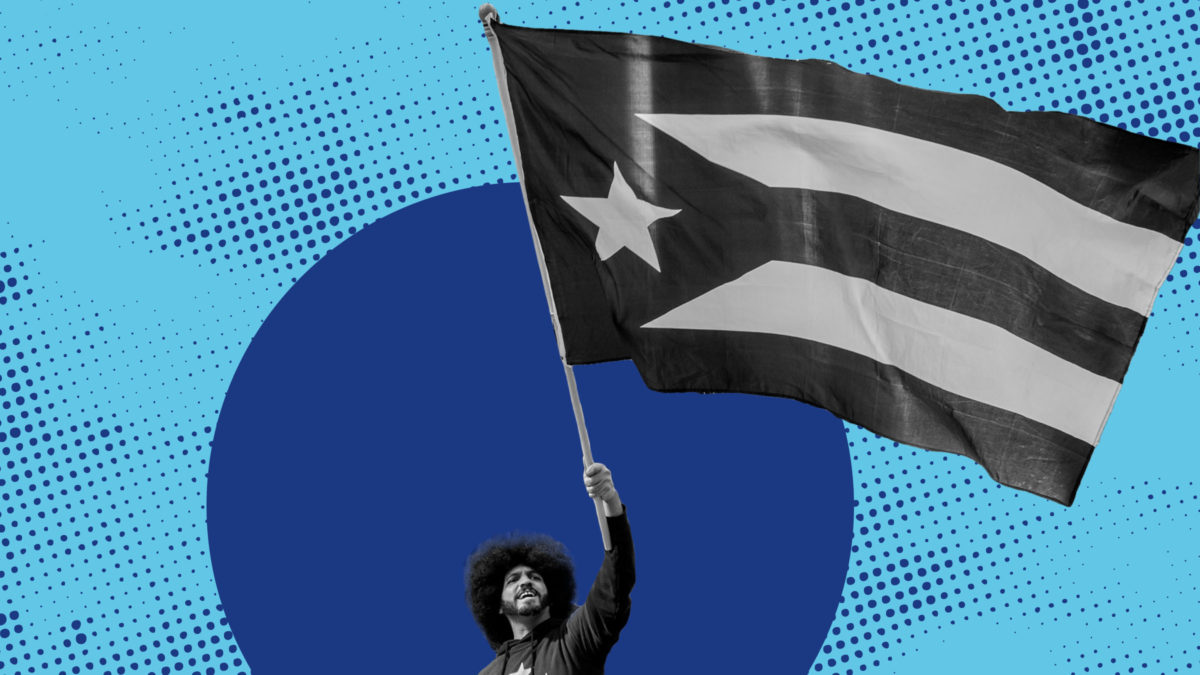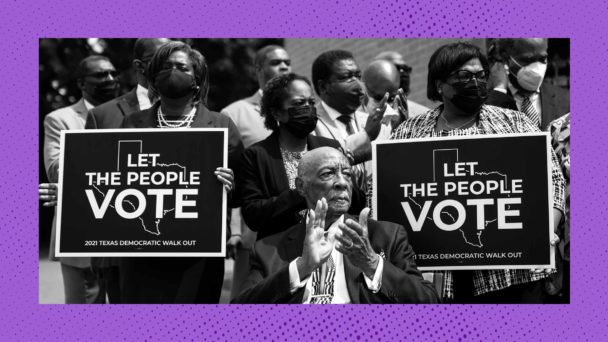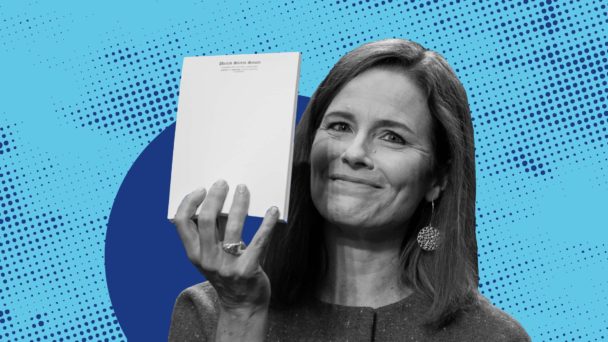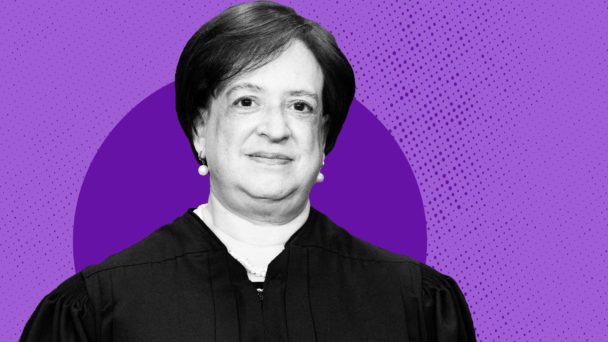More than a month after Hurricane Fiona hit Puerto Rico, tens of thousands of people remain without power. Rural clinics are scrambling to find backup-generator-powered freezers to store life-saving medicines and vaccines. Residents are surviving on a diet of easily-obtained dry goods, while perishable foods have long gone bad. And there is little clean water as filtration systems and pumps can’t function without power. None of this is new for the island, a territory of the United States.
In the past five years, Puerto Ricans have endured a crumbling power grid devastated by natural disaster, neglect, and financial troubles. They struggle with frequent blackouts but pay almost twice what residents of the mainland U.S. do for electricity. In 2017, Hurricane Maria wrecked the island’s power grid, and just a few months later the Financial Oversight and Management Board, a board appointed by Congress, declared that the island was bankrupt. Puerto Rico had accumulated $70 billion in debts to keep basic services running and was unable to pay them back.
Guided by the oversight board, Puerto Rico’s Electric Power Authority contracted the private company LUMA to fix the dilapidated grid, and the company delivered spotty electricity while driving up prices. Despite promises to “create the necessary foundation for economic growth” on the island, the oversight board has allowed LUMA to prioritize profit over ensuring effective provision of electricity. It took 328 days for the power to fully come back.
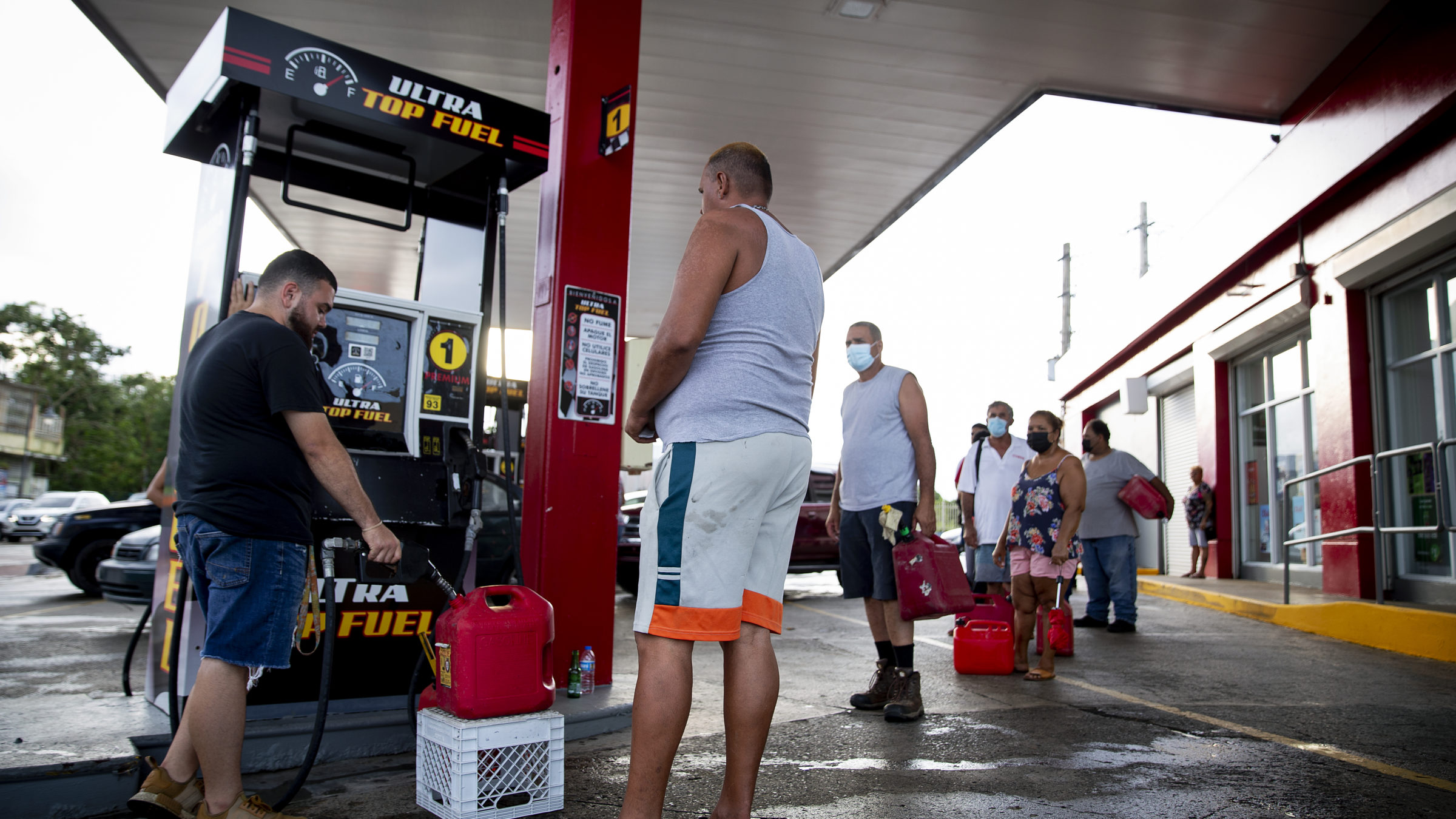
People wait in line to fuel gas tanks in the wake of Hurricane Fiona, September 20, 2022. A general power outage forced most people to rely on gas generators to power their homes and businesses (Photo by Jose Jimenez/Getty Images)
It was just the year prior that Congress created that private oversight board, whose members included several finance and insurance executives, to govern the island. A fleeing tax base and generous tax exemptions for foreign corporations left little revenue for public services like education and healthcare. The short-term fix was an ill-advised one: borrowing and borrowing from big banks to keep the lights on. Those big banks, in turn, enthusiastically bought up Puerto Rican bonds—a precedent from Detroit, Michigan, and its bankruptcy woes showed that creditors would get paid back one way or another.
For the last five years, the oversight board has taken extreme measures to pay back the banks: cutting off electricity, shutting down schools, and slashing hard-earned pensions. In 2019, amidst mass protests calling for the ousting of the oversight board, its seven members used the unrest to argue for even more authority for themselves, including the ability to veto voter initiatives.
Now, the U.S. Supreme Court will entertain another of the oversight board’s attempts to increase its power. In a case the justice recently agreed to hear, Financial Oversight and Management Board for Puerto Rico v. Centro de Periodismo Investigativo, the board is arguing that it is immune from all lawsuits brought by Puerto Ricans seeking to hold it accountable for its management decisions.
Since 2018, this unelected board has fought a request from Centro de Periodismo Investigativo, an investigative news nonprofit, for documents related to its debt restructuring plan. Earlier this year, a court approved of the board’s proposal for reducing most of the island’s bankruptcy debt. The plan was most peculiar in what it did not include: Notably, the restructuring of the Puerto Rico Electric Power Authority’s debt of $9 billion, which is also the largest share of any government agency on the island. The oversight board’s resolution of Puerto Rico’s bankruptcy required a zero-sum calculation between providing repaying creditors and paying for the social services the debt was meant to pay for. The more creditors are paid back in full, the less money is available for the basic infrastructure for which the island obtained its debt.
Despite the plan’s impact on the availability of Puerto Rico’s social services, the oversight board is refusing to disclose specifics to the public, claiming it would be “burdensome.” In May of this year, the First Circuit Court of Appeals ordered the oversight board to answer the news agency’s request. Last month, however, the Court agreed to hear the oversight board’s appeal claiming that it is entitled to sovereign immunity, protecting it from being sued in federal court.
Sovereign immunity is a judicial doctrine based in British common law—the idea that “the King can do no wrong.” The doctrine doesn’t allow for anyone to sue a federal or state government without its consent. Puerto Rico is not a state, and the oversight board is not a government. But still, the oversight board insists that it is entitled to sovereign immunity because it is “an entity within the Commonwealth government” and everything it has done has been “on behalf of” Puerto Rico. In other words, an unelected oversight board of finance and insurance executives is arguing that it is legally equivalent to a state.
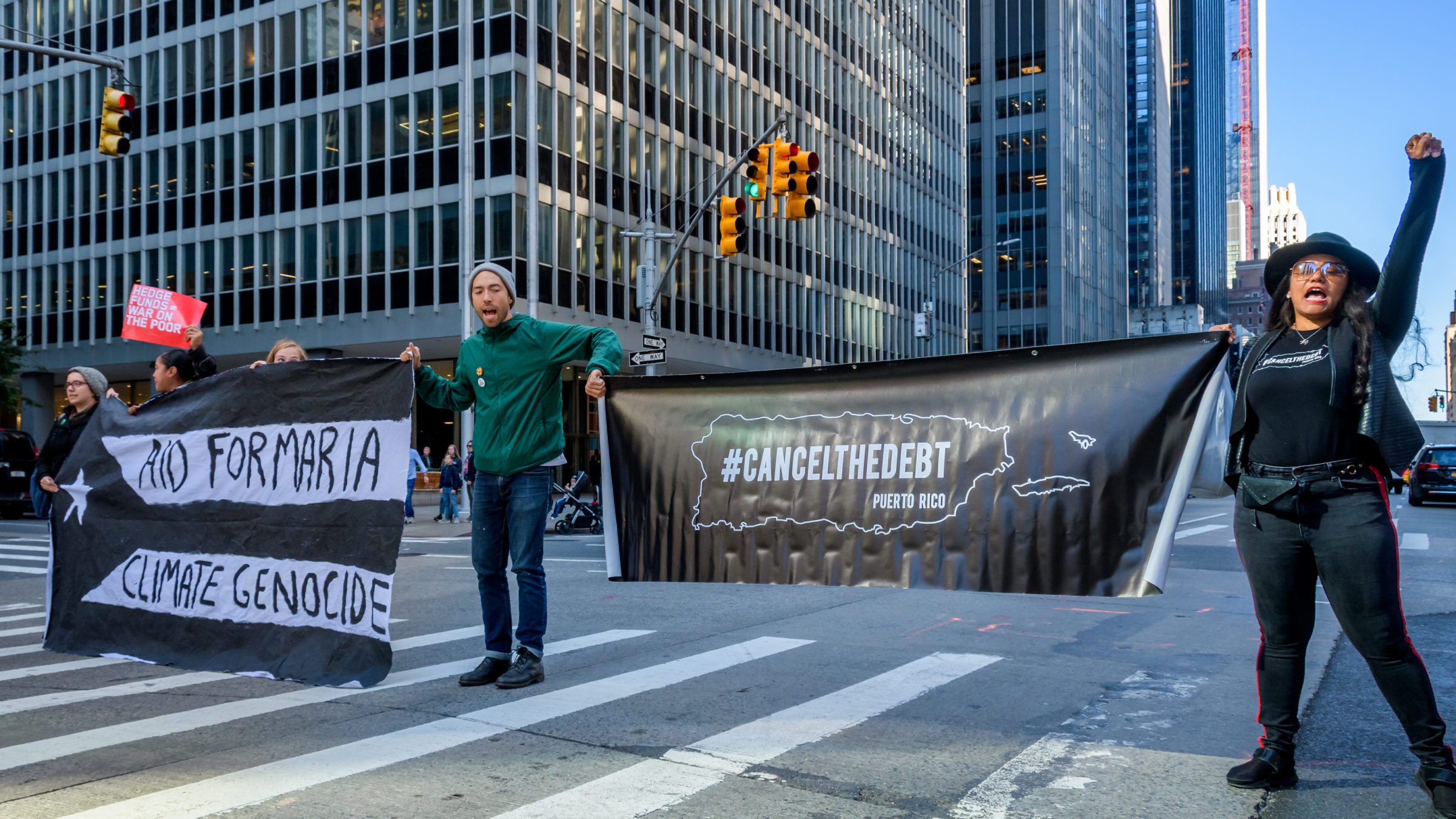
Protesters carry a black Puerto Rican flag, a symbol of the mourning of the Puerto Rican Nation in colonial captivity, at a protest of a prominent New York City hedge fund manager who owns much of Puerto Rico’s debt (Photo by Erik McGregor/LightRocket via Getty Images)
Whether the oversight board is entitled to sovereign immunity is a question that the Court has muddled through in decisions like Filarsky v. Delia. In that 2012 case, the Court insulated a private attorney hired by the City of Rialto (CA) from a firefighter who sued the attorney for surveilling him. The Court held that the attorney was not liable for what he did while “hired by the government to do its work.” And it will now decide if the oversight board is immunized from lawsuits for the same reason.
There are few similarities between a private group of people running a colony of the United States and a democratically-elected state government. Puerto Rico’s congressional representatives cannot vote on legislation, and its citizens cannot vote for the United States president, meaning that the person who chooses the members of the oversight board is not accountable to the people it governs.
With such little say in their governance, Puerto Ricans should be able to, at least, avail themselves of federal courts to ensure transparency or otherwise hold the oversight board to account. They are entitled to know the how and why of the collapse of government social services around them.
Spain robbed Puerto Rico of self-governance five centuries ago. The United States continues to do the same. Puerto Ricans had no say in entrusting their fates to a private board more concerned with paying Wall Street creditors back then improving their lives. They’ll have no say in the latest saga of outsourcing Puerto Rican governance, either.
Correction: This post has been updated to accurately reflect the PROMESA Board’s composition at its founding.
